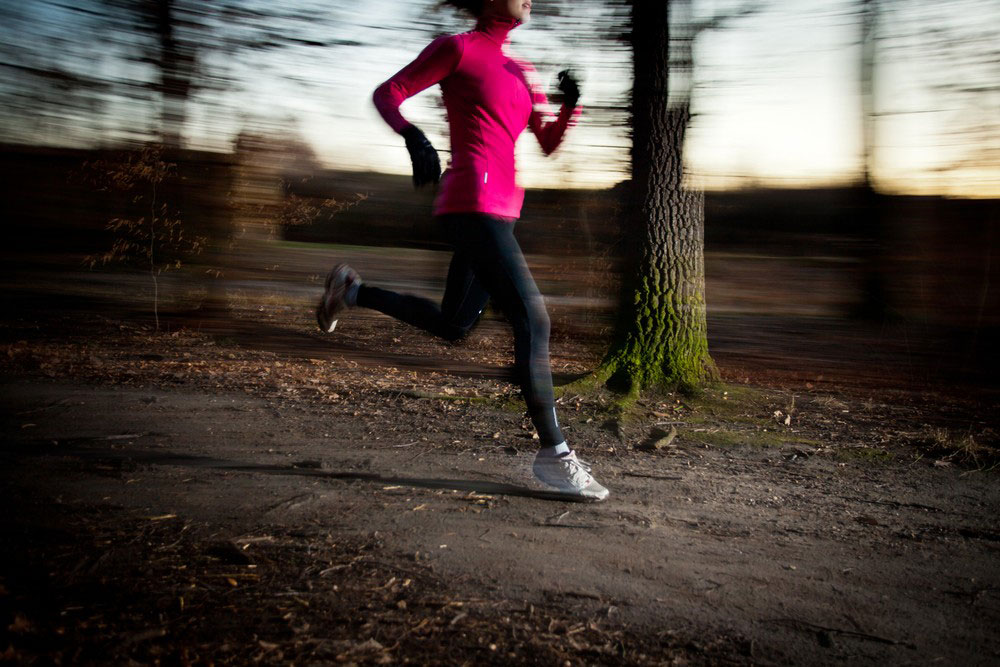If you’re looking for a new workout challenge, trail running is a great way to break the monotony of the treadmill and get outdoors to clear the mind, improve health and enjoy a bit more of nature.
Three-time off-road triathlon World Champion, National Cross Country Running champion, fitness coach and trail runner Lesley Paterson gives us her expert advice on how to get started and make trail running a regular part of your fitness routine.
Where are the best places to go trail running?
Start by finding a local park or trail, and just run! No special equipment needed.If you are completely new to running, alternate between walking and running for one minute until you can run continuously without stopping. When you first start, no distance or time is too short — even if you try to run for just five minutes at first. As you build up fitness and strength, you may be able to run for an hour or even longer.
Do you need any special gear for trail running?
Although you can trail run in regular running shoes, if you decide to do more off road running you should invest in special shoes designed for trails. Trail running shoes have more grip on the soles, better protection for your toes (to stop rocks and stones hitting them!), and more heel and ankle support to help prevent twisting your ankle. Most running shops and sports shops sell trail shoes.
Is trail running safe?
Personal safety is always important, regardless of your running experience. Try to run with a partner if you can, take your cell phone, and be on the look out for rocks or obstacles that could make you trip and fall. Try to look at a map before you run so you know the distance and elevation gain. If in doubt, always start with “out-and-back” runs — running for a set distance or time then turning around and retracing your steps.
What should I take with me on a run?
If you plan to run for longer than 30-60mins, it’s always a good idea to take fluids and some food with you. You can buy small waist belts that hold mini water bottles especially designed for running. Put a few energy gels in your pocket and off you go! Always remember to wear sunscreen and a hat if the sun is out.
How can I avoid injury during trail running?
The latest research in sports science now recommends AGAINST stretching before you run (i.e., before you have warmed up) so it’s a good idea to stop during your run (after 5-10 minutes) to stretch your calves, quads and hamstrings. For beginners, it’s best to choose flat trails with an even surface, such as local parks, fire roads or bridal paths. As you develop more fitness, look for hills and more obstacles like rocks and fallen trees.
Because it’s normal to feel sore after your run, make sure to stretch and try not to run on consecutive days until you develop more fitness. A good rule of thumb is to not increase your weekly mileage by more than 10 percent each week.
I’m not used to running, how can I stay motivated?
Setting goals is always a great strategy to boost motivation. Most cities have 5km and 10km cross country races and trail runs. Don’t be scared by the word “race.” Go at your own speed and remember to enjoy the surroundings and the experience. The trail running community is welcoming of all abilities. It doesn’t matter when you finish — just finish, and you will be hooked on the sense of accomplishment!
– Cover Image: © l i g h t p o e t/shutterstock.com
– Source: AFP Relaxnews









